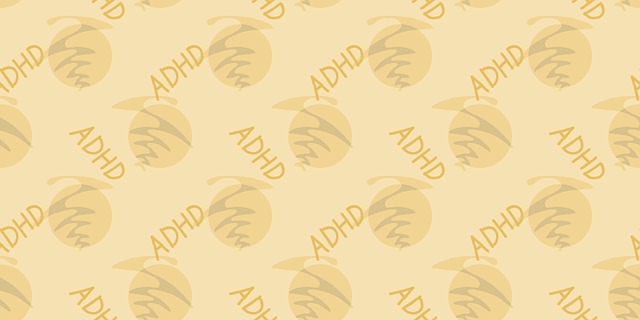Do you or your child have ADHD? If so, have medications been suggested? Do you wonder about whether they would help or hurt with managing symptoms?
Medications are an important part of treatment for numerous individuals with ADHD. At the same time, many people and their families have questions about the impact of these medications. This article intends to provide more clarity on how medications work and their impact and offer tips for effective medication management.
How Medications Work
ADHD medications work by increasing the amounts of the chemicals dopamine and norepinephrine in the brain. Raising the amounts of these chemicals enables individuals with ADHD to increase their attention span, reduce hyperactivity, control impulsive behaviors, and improve executive functioning.
Several types of medications are commonly prescribed for ADHD. Stimulants are the most frequently prescribed type and increase the brain’s levels of dopamine and norepinephrine. Stimulants are controlled substances, which means they can potentially be used inappropriately. However, they are typically safe when taken under a doctor’s care. There are both immediate-release and extended-release stimulants. Immediate-release stimulants, such as Ritalin and Adderall, can be taken as needed and last for up to four hours. Extended-release stimulants, including Concerta and Vyvanse, should be taken once in the morning daily and can last from between 6 to 16 hours.
Non-stimulants also increase levels of norepinephrine in the brain but are not controlled substances. The effects of non-stimulants may not be felt for three to four weeks. Non-stimulants include Strattera and Intuniv and may last for 12 to 24 hours. Doctors also occasionally prescribe antidepressants such as Wellbutrin for ADHD treatment by themselves or along with stimulants.
Positive Impact of Medications
Much of the research on medications has found them to be helpful for brain development, symptom management, and long-term outcomes for people with ADHD. The brain’s prefrontal cortex, fronto-striatal-cerebellar projections, and caudate nucleus – which are critical for planning, focusing, learning, and retaining information – are smaller in children with ADHD than in children without it. Research suggests that individuals with ADHD who are treated with stimulants as children will have these areas of the brain develop to reach average adult size, whereas these areas of the brain will remain smaller in those with ADHD who are not treated with stimulants.
In addition, medications decrease the severity of hyperactivity, inattention, and impulsivity. Children taking medications complete more work in their seat and violate classroom rules less often. Medications also help undergraduate college students increase effortful behavior, improve their episodic memory, and reduce their emotional reactions to frustration.
Moreover, individuals with ADHD are less likely to finish high school and college and are at a higher risk for unemployment and substance use issues than the general population. However, individuals who take ADHD medications significantly reduce these risks. Medications also reduce the risks for injuries and motor vehicle accidents.
Side Effects and Risks of Medications
While a great deal of research points to positive impacts of ADHD medications, numerous individuals experience side effects from the medications. The side effects can include:
- Loss of appetite
- Trouble sleeping
- Changes in blood pressure
- Anxiety
- Headaches
- Aggression
- Dizziness
- Nausea
- Drowsiness and fatigue
Furthermore, there is little evidence that the use of ADHD medications without a prescription improves the academic or work performances of those who do not have ADHD. Conversely, studies have found that stimulants promote risky behaviors, such as wakefulness for last-minute studying for undergraduate students.
Medication Management Tips
If you plan to pursue medications for ADHD or if they have been recommended, the following tips may be helpful to effectively manage the medications. It is important to have regular check-ups with your doctor to discuss your medications and any side effects. Your doctor can also change your medication or your dosage if you experience side effects. In addition, medications are not the only piece of the puzzle for the treatment and prevention of ADHD. Numerous doctors recommend therapy when prescribing ADHD medications. A full night’s sleep, exercise, and meditation also provide critical benefits for the mind and body for individuals with ADHD. Multiple doctors also suggest that breastfeeding infants, providing children with considerable amounts of magnesium, and minimizing sugars, grains, and dairy can reduce symptoms of hyperactivity.
If you take medications for ADHD, you may also wonder how long they need to be part of your treatment. It may be possible for you to discontinue medications if your life circumstances change. One board-certified mental health professional suggests the possibility of individuals discontinuing medications, lowering their medication dosages, or reducing the frequency they take medications as their children get older or if their job responsibilities or schedules change.
Nevertheless, if you have ADHD, you will most likely have symptoms manifesting throughout your life in some way. You will benefit from using a variety of wellness strategies to manage these symptoms. If you take medications, you should work with your doctor if you experience unpleasant side effects. At the same time, there is a significant chance that appropriately-prescribed medications can help you concentrate and plan effectively, fidget less, enjoy more success at work and school, and be the best version of yourself.
References
- Advokat, C., & Scheithauer, M. (2013, May 29). Attention-deficit hyperactivity disorder (ADHD) stimulant medications as cognitive enhancers. Frontiers in Neuroscience, 7(82). Retrieved September 3,
2023 from
https://www.ncbi.nlm.nih.gov/pmc/articles/PMC3666055/ - Castro, R. (2022, May 23). Medication alone doesn’t help kids with ADHD learn. FIU News.
https://news.fiu.edu/2022/long-thought-to-be-the-key-to-academic-success,-medication-doesnt-help-kids-with-adhd-learn,-study-finds - Chang, Z., Ghirardi, L., Quinn, P.D., Asheron, P., D’Onofrio, B.M., & Larsson, H. (2019, September 1). Risks and benefits of ADHD medication on behavioral and neuropsychiatric outcomes: a qualitative
review of pharmacoepidemiology studies using linked prescription databases. Biological Psychiatry, 86(5). Retrieved September 3, 2023 from
https://www.ncbi.nlm.nih.gov/pmc/articles/PMC6697582/ - Circles of Learning. (2023). ADD/ADHD by Dr. Mercola.
http://www.circlesoflearning.org.au/library/add-adhd/addadhd-by-dr-mercola/p/80 - Cleveland Clinic. (2022, October 6). ADHD Medication.
https://my.clevelandclinic.org/health/treatments/11766-adhd-medication - Constance, L. (2020, December 18). Research Review: Medications for ADHD Treatment – Efficacy, Side Effects, Safety. ADDitude. https://www.additudemag.com/medications-for-adhd-research-review/
- Hernandez, A. (2021, November 26). Do I have to take ADHD medications forever? Upper Valley Behavioral Health.
https://uppervalleybh.com/resources/blog/do-i-have-to-take-adhd-medications-forever - Johnson, J. (2018, May 23). Is my ADHD medication working? Medical News Today.
https://www.medicalnewstoday.com/articles/321895 - Karniski, W. (2023, April 12). Q: “What Are the Long-Term Effects of ADHD Medication on the Brain?” ADDitude. https://www.additudemag.com/long-term-effects-of-adhd-medication-brain/
- NHS. (2021, December 24). Treatment: Attention deficit hyperactivity disorder (ADHD).
https://www.nhs.uk/conditions/attention-deficit-hyperactivity-disorder-adhd/treatment/




Comments are closed.